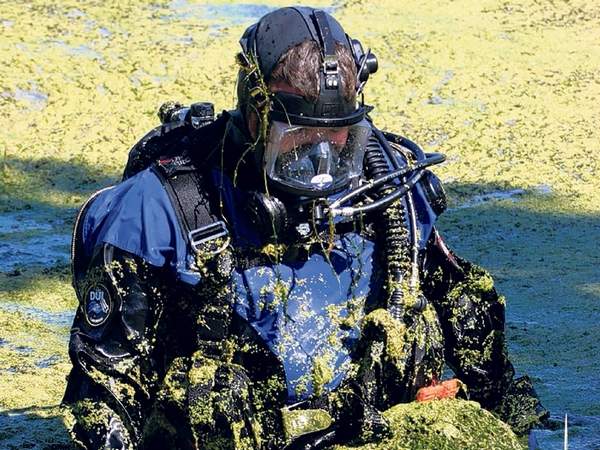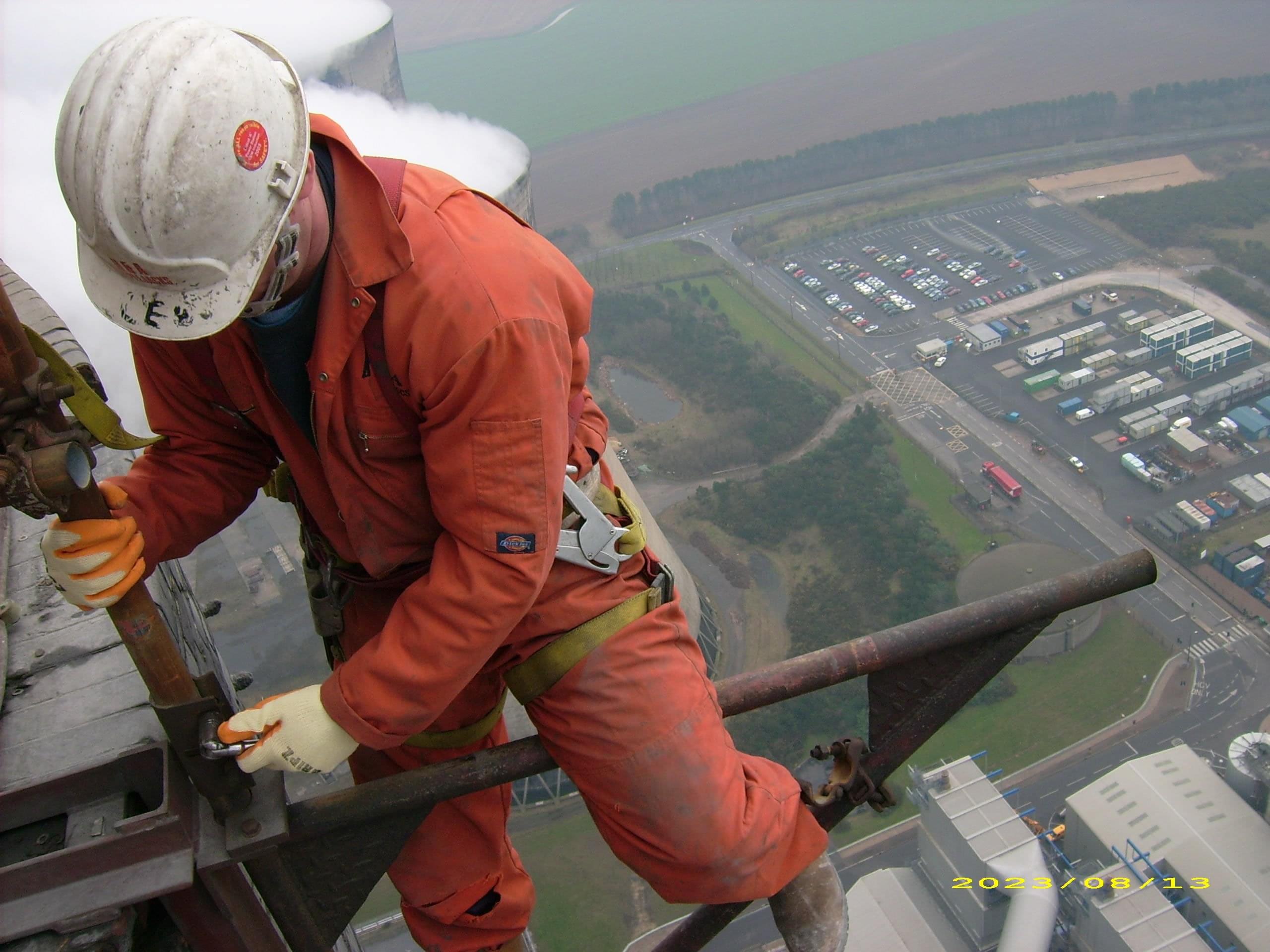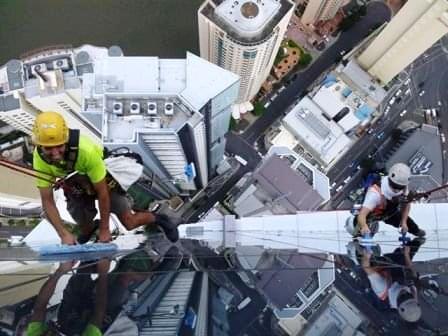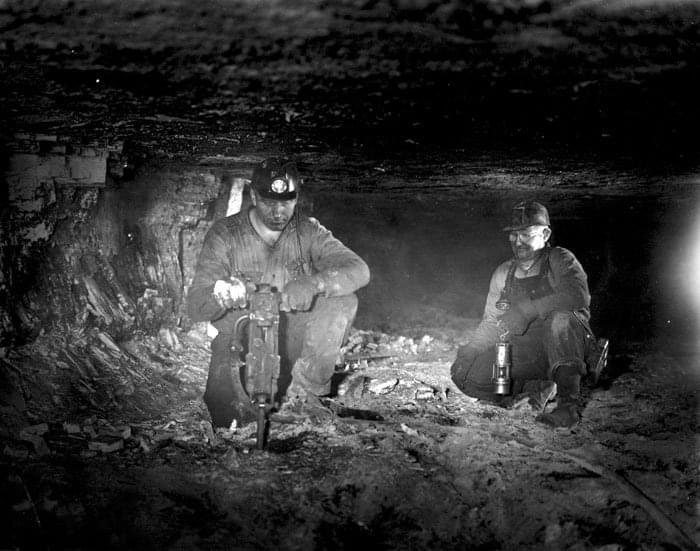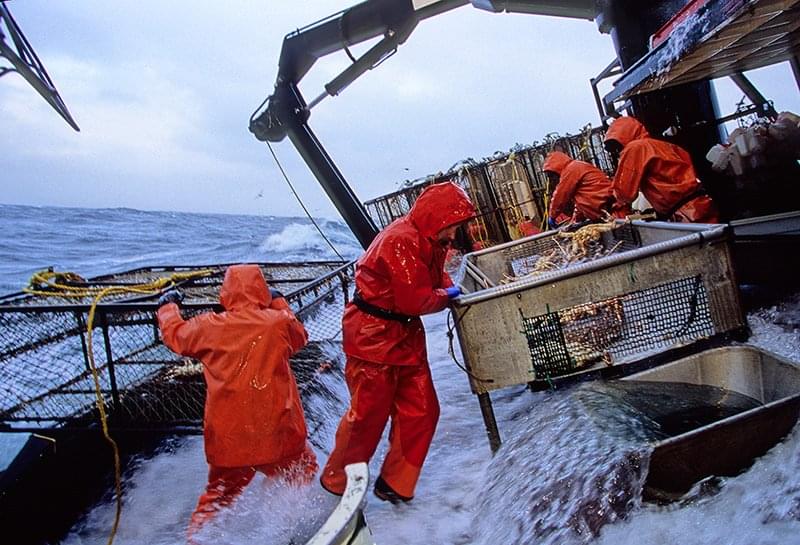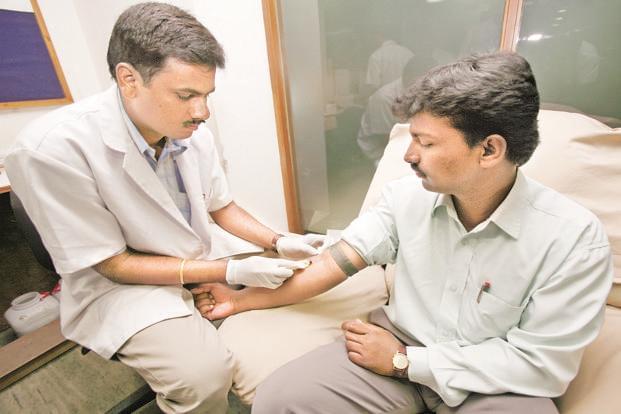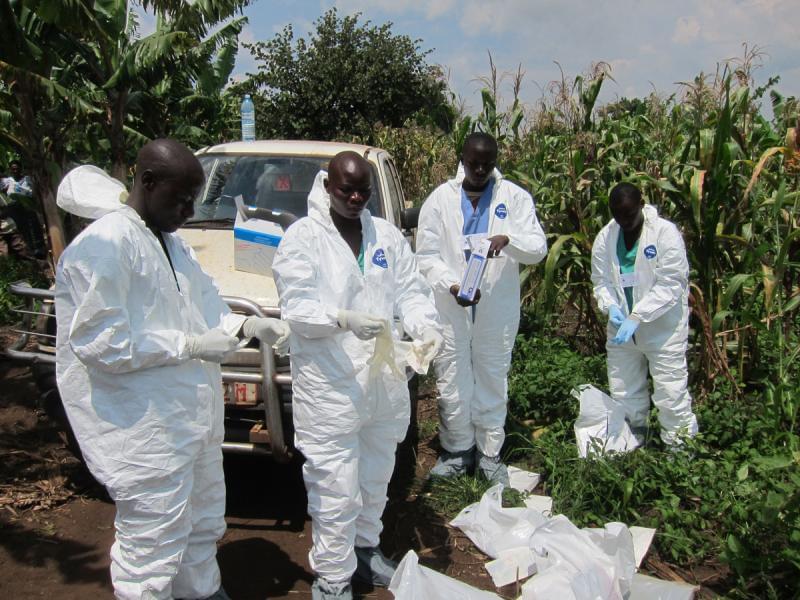The Top 12 Scary, Creepy and Downright Disturbing Jobs????

Stressing because you can’t find a suitable candidate for a marketing or a sales role? Then stop for a minute and spare a thought for the recruiter who has to find and convince someone to take one of the twelve scariest and down right creepy jobs in the world. From dead bodies to disease and extreme heights to insects, these jobs are not for the faint of heart!
So sit back, (try to) relax, and check out some of the most gruesome job opportunities around:
12. Police Diver
Fancy going for a cold, dark dip in polluted water? Didn’t think so! Unfortunately, Police Divers don’t have a choice. It’s part of their job description to submerge themselves in all manner of lakes, rivers, canals, sewers and cesspits in order to carry out underwater searches looking for human remains, animal remains, murder weapons, wrecks, stolen property and explosives.
11. Steeplejack
Chruch spires, cathedral domes, industrial chimneys, towering skyscrapers – all remarkable feats of human engineering, and all in need of repair at some time in their lives. That’s where Steeplejacks come in. Their job is to build and repair tall structures, which means they normally spend their days scaling, clinging to and hovering above some pretty terrifying drops. I think it’s fair to say “a head for heights” would be useful in this job!
10. High-Rise Window Washer
For an average annual salary of a $28K and the imminent possibility of gruesome death, you too can have the pleasure of zipping from window pane to window pane to clean the nation’s high-rise buildings. But hey! If you don’t die on the job you’ll be privy to everyone’s business working in the office!
All jokes aside, high-rise window washers need training (and usually a certificate) before they’re allowed to work at heights, use power-operated access equipment, scaffolding and abseiling techniques. It’s a heavily regulated industry – washers must assess every job before they begin and create an emergency rescue plan – but serious and sometimes fatal accidents still happen from time to time.
9. Miner
Mining is one of the world’soldest industries, and has a long and contentious history to prove it. This job is not for the faint-hearted and claustrophobics need not apply! Miners spend long hours confined in tight spaces, working in poor light. But while there’s good money to be made from it, the job comes with significant risk.
We all remember the happy ending to the Chilean mining disaster of 2010, but positive outcomes like this are rare. Over 12,000 mining deaths are recorded each year, with many more thought to go unrecorded. Common mining hazards include cave-ins, gas explosions, vehicle or equipment crushings, chemical leaks and electrocution, all down mines that can be as deep as 3.9km. Oh, and Miners also have significantly shorter life expectancies due to prolonged exposure to industrial air pollution…
8. Rodeo Clown
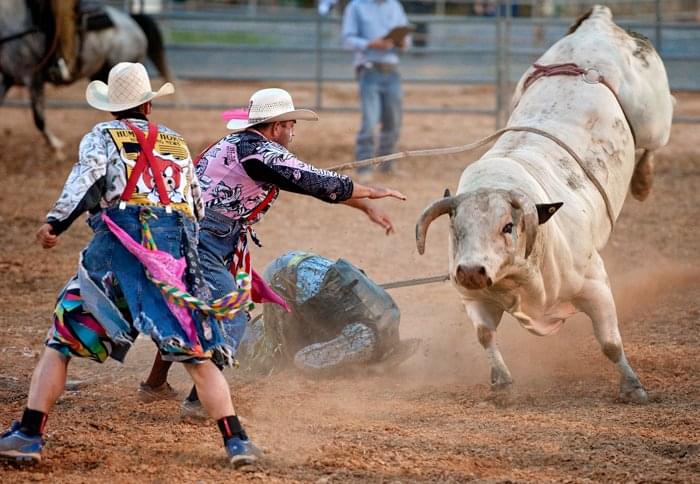
They may look likes clowns but this job is no laughing matter! Rodeo clowns aren’t just there for audiences to laugh at while stuffing their faces with hot dogs and popcorn; their actual job is to distract the bull once he’s emerged from the bucking chute. Working in teams, rodeo clowns shout, provoke and throw hats so fallen bull riders can safely escape the ring. Essentially, Rodeo Clowns are bullfighters with make up on! Average rodeo clowns make anywhere between $100 and $500 a job; however, the most skilled and experienced clowns make six figures a year. Not bad if you don’t mind locking yourself in an open pit with a raging bull…
7. Alaskan Crab Fisherman
According to a recent survey by the US National Institute for Occupational Safety and Health, Alaskan crab fishing is the most dangerous job in the United States. Because of the harsh environment and the fishing methods used, mortality rates in this role are 26 times higher (80%) than that of the average worker. Yes, unlikely as it seems, Alaskan Crab Fisherman is consistently voted among the most dangerous professions in the world.
Even successful voyages aren’t pleasant: these fishermen live in cramped quarters for weeks at a time, go days without showering, and regularly work 48 straight hours in freezing conditions hauling up nets or cages weighing several hundred pounds. Add pelting rain, rogue waves and icy decks into the mix and the work becomes lethal! These fishermen are at the mercy of unpredictable weather and ocean conditions and, thanks to the state’s geographical location, Alaskan waters are colder and less forgiving than most other fishing environments.
Not so fun fact: An average of one fisherman dies while on the job per week.
6. Clinical Trial Subject
Signing up to test new drugs can be a lucrative gig. You take a few pills, they stick a few needles in you, you get paid, and you go home. But while most subjects pass through trials without incident, there is an element of Russian roulette to clinical trials. As one observer of a trial that went wrong in 2006 commented: “The men went down like dominoes. They began tearing their shirts off complaining of fever, then some screamed that their heads were going to explode. After that they started fainting, vomiting and writhing around in their beds.”
Full-time test subjects take medications that are sometimes not ready for the open market, endure endless blood tests, and risk serious medical harm. But when the pill bottle is empty and the research is complete, subjects get hefty pay checks.
“It’s scary in the sense that you’re subjecting your body to things when you have no idea what they are,” Lee said. Not only are pharmaceutical companies unaware of the effect their treatment will have on people with certain rare blood types and conditions, but trial subjects don’t always know if they are allergic”
5. Field Epidemiologists
Another job which requires playing Russian roulette with your health, is a Field Epidemiologists. An employee of an epidemiology ward, a Field Epidemiologist works in communities where the outbreak of a new disease has occurred in order to study the disease as it progresses in real time.
Field Epidemiologists are often employed by organizations like the CDC to go into “Hot Zones” and prevent outbreaks from turning into full-on pandemics. Protected by little more than a hazmat suit, it is then their job to get up close and personal with germs, blood, needles and dead bodies on a daily basis – not to mention the risk they run of contracting a deadly disease themselves.
4. Bomb Squad Technician
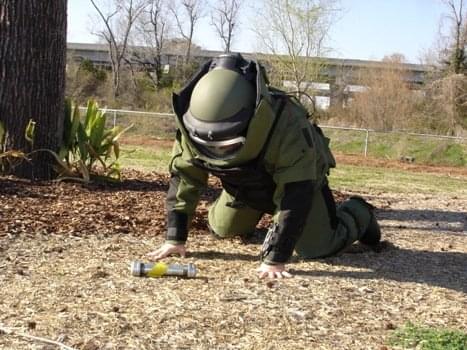
While Police Departments are increasingly employing robots for bomb disposal, there are still plenty of instances where human Bomb Squad Technicians are needed to determine whether it’s the red wire or the blue wire. Yes, the job of a Bomb Squad Technician is to render hazardous explosive devices safe by defusing them or doing a controlled detonation. But despite the blindingly obvious risks attached to doing such a job, amazingly, Technicians operate on a voluntary basis. Sure, there’s good money to be made, but their Kelvar and steel plated suits are not indestructible!
3. Cryonics Technician
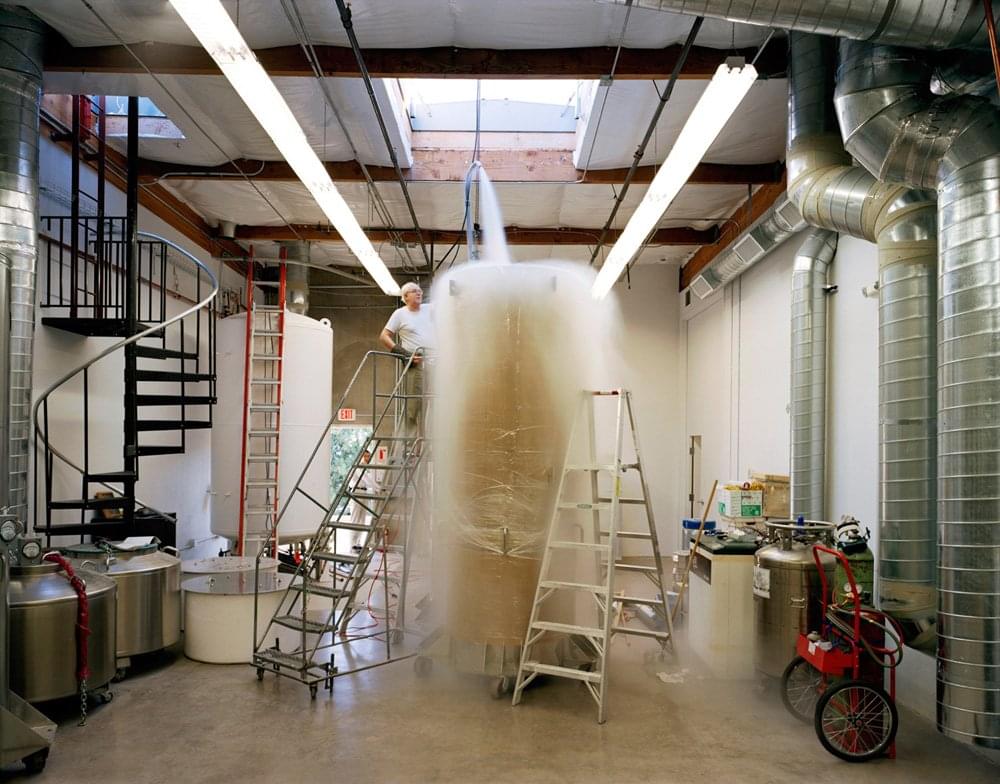
If you suffer from any of the following phobias, then I’m afraid a career as a Cryonics Technician is not for you; Necrophobia (dead bodies), thanatophobia (dying), hemophobia (blood), trypanophobia (needles). Why? Well, the practice of Cryonics involves attempting to preserve people who are legally dead at very low temperatures, so that they can be revived in the future when medical advancements are able to restore life.
Cryonics Technicians typically preserve just the head of a patient, since the goal is to protect the brain for eventual resuscitation. Cryonics is controversial among scientists, but no matter what your opinion is of the practice, there’s no denying that any profession which involves removing the heads of people who’ve just died and preserving them at -200 degrees is a little bit scary.
Cryonics Technicians may be rare, but there is a niche market for people who want to be frozen after death. “There are still people preserving their heads,” says Andrew Strieber. “The issue there is, do you really want to deal with severing people’s heads and putting them in cryonics chambers?”
2. CTS Decon Technician

While TV Shows like CSI give us a glimpse of gruesome crime scenes, there’s one aspect they tend to leave out – who gets to mop up once the investigation is done. Yes, when the police officers and the detectives finish investigating a crime scene, it’s up to the Crime and Trauma Scene Decontamination (CTS Decon) team to swoop in and clean it all up. This little-known field was the subject of 2009 movie “Sunshine Cleaning”.
On a typical day, a CTS Decon Technician has to get down and dirty with biohazards like splattered blood and such human remains as brain tissue, as well as dangerous chemicals from places such as meth labs. CTS Decon Technicians are also called to scenes of crimes and grizzly accidents, and other unfortunate events that are anything but sterilized.
1. Forensic Entomologist

What exactly does a forensic entomologist do? If you’ve seen the movie “The Silence of the Lambs,” you might have a good sense of what exactly the job entails, but for those of you that haven’t seen it, a forensic entomologist uses insect knowledge in crime-related legal cases, like analyzing bug activity in a cadaver to determine a person’s time of death or if the body has been moved.
That’s right, it’s a Forensic Entomologists job to carve up cadavers in search of crime scene clues, and analyse the insects living inside those bodies on order to determine the time or place a crime occurred based on the type of beetles, flies or maggots living inside the victim…
Mmmmm, enjoy your lunch Recruiters!

